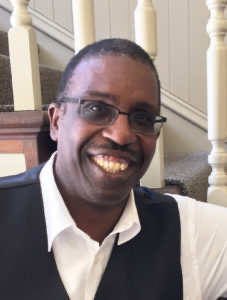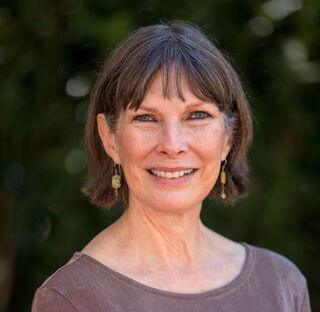Coronavirus Disease 2019
African American Churches and Their Responses to Coronavirus
Interview with Rev. Floyd Thompkins and Dr. Lisa M. Brown on COVID-19 responses.
Posted August 7, 2020 Reviewed by Devon Frye

African American churches are key places for receiving information, guidance, and solace during times of distress in many communities across the U.S. Here are some insights from research and dialogues between pastors, mental health professionals, public health officials, and academics.

Rev. Floyd Thompkins served as Dean of Religious Life at two world-class institutions, Stanford and Princeton universities. He has developed unique, highly effective programs to empower underserved teenage youth and young adults in urban and rural areas—in East Palo Alto, CA, and rural South Georgia. He was senior pastor at Antioch Baptist Church, the second oldest African American Church west of the Mississippi, and he was the Education and Administrative Pastor of Covenant Christian Church in Douglas, GA. During his first year of being the Director of the Center for Innovation in Ministry at San Francisco Theological Seminary, the center was awarded an Innovation Grant from the Northern Kaiser Family Foundation.
Lisa M. Brown, Ph.D., ABPP is Professor, Director of the Trauma Program at Palo Alto University, and an Adjunct Clinical Professor at Stanford University School of Medicine. Her clinical and research focus is on trauma and resilience. As a researcher, she is actively involved in developing and evaluating health programs used nationally and internationally, drafting recommendations aimed at protecting vulnerable individuals and communities, facilitating participation of key stakeholders, and improving access to resources and services.
This is Part 1 of a two-part interview with Rev. Floyd Thompkins and Dr. Lisa M. Brown; you can find Part 2 of this series, along with all other Hope + Resilience posts, here.
Jamie Aten: How did you first get interested in this topic?
Floyd Thompkins: We at the Foundation for Justice and Peace (JPF) simply wanted to respond and innovate to meet the needs of this present crisis. COVID-19 is disproportionately affecting the African American community. We are experiencing higher rates of infection, sickness, and death. At the same time, we are experiencing racialized death in many other trauma-inducing ways (policing, health care disparities, etc.) All of these have a huge effect on Black churches. From our previous work, we knew that African American churches are community trust agents—pivotal to the delivery and translation of public health messages. They also deliver primary pastoral care and encourage and refer people to mental health services. That was a part of JPF’s ongoing commitment to encouraging and building strong and healthy communities.
Lisa Brown: As a clinical psychologist and as a community-based participatory researcher who conducts applied research, I prioritize opportunities where I can collaborate with colleagues and organizations who share my values and are striving to make and support positive social changes. Working with the Foundation for Justice and Peace allows me to make the most of my God-given talents by contributing to worthy endeavors that have the potential to make a difference in real-world settings. There are so many issues that need to be actively addressed to create an environment where people can live peacefully, equitably, and with dignity. Being able to meld my religious beliefs and mental health knowledge to affect culture transformation is exciting and empowering.
JA: What was the focus of your recent study?
FT: In early April 2020, we held a dialogue between pastors, mental health professionals, public health officials, and academics. The agenda was to listen and see how things were working, highlight what was not working, and seek ways that they could be better. Rev. Fer-Rell Malone, Rev. Darrell Armstrong, Rev. Eloise Knox, Rev. Booker Vance, Bishop Ernest Jackson, Rev. Janice Sommerville, and Chaplain Kathy Thompkins were key speakers; these faith leaders have ministerial networks of 951 churches with approximately 206,450 congregants. From the public health sector, Dr. Vincent Fuqua and Dr. Ayanna S. Bennett, MD of the San Francisco Department of Public Health accepted our invitation to speak. Dr. Lisa Brown and Dr. Peter Goldblum were our academic experts.
For the churches, their quick pivot to online, live worship services has been successful in maintaining connection in their congregations. In fact, churches have been experiencing growth as people seek spiritual solace during upheaval. What remains an obstacle was the ritual interruption that occurs around funerals. There, the virtual environments seemed inadequate to navigate the grief and trauma of losing a loved one, consoling another, and supporting each other.
For mental health and public health services, the message was less clear. Because of the evolving understanding of the virus and the learning curve amongst the medical community in handling cases, they were still struggling with getting the appropriate messages to the most vulnerable communities. They were also struggling with referrals and access to the most vulnerable people.
JA: What did you discover in your study?
FT: We discovered:
- Ritual disruption. “The loss of ritual disrupts the process of closure.” The loss of ability to hold in-person funerals and Sunday services was noted, although all understood the need for physical distancing. Concerns were expressed about spiritual loss and disintegration of congregations.
- Negative reaction to the narrative that individuals of faith and churches do not heed public health guidelines. “I’m concerned with the lax attitudes that people are having.” Some suggested that people may be confused by mixed public health messages, whereas others blamed the pastors for putting their congregations at risk when they continued to hold services.
- Trauma. “It’s reminiscent of trauma we faced in Katrina. We had heatwaves, people dying in their homes.” COVID-19 needs to be understood within the context of historical harms. The church is a source of community resilience. Adapting to physical distancing brings up deep and historic anxiety. People with histories of trauma may find it more difficult to abide by restrictions.
- Culture and trust. “We always knew that there were health disparities in the community but hearing out loud that we are dying at a higher rate was devastating.” Most speakers mentioned the impacts of historical harm, health disparities, stigma, and distrust of medical institutions. Congregants rely on their family and the church to guide them in times of crisis rather than medical experts.
Check back tomorrow for Part 2 of this series, along with all other Hope + Resilience posts, here.
References
Thompkins, F., Jr., Goldblum, P., Lai, T., Hansell, T., Barclay, A., & Brown, L. M. (2020). A culturally specific mental health and spirituality approach for African Americans facing the COVID-19 pandemic. Psychological Trauma: Theory, Research, Practice, and Policy, 12(5), 455-456. http://dx.doi.org/10.1037/tra0000841


